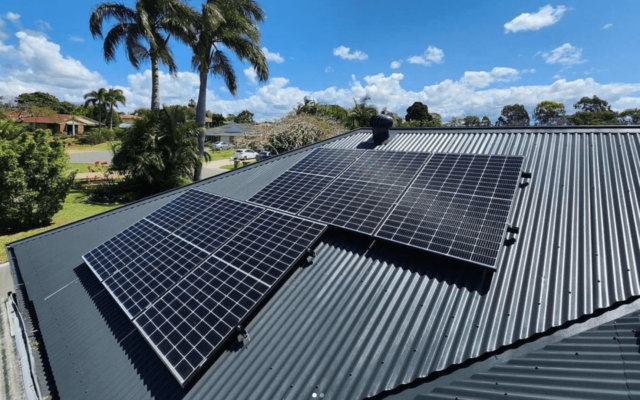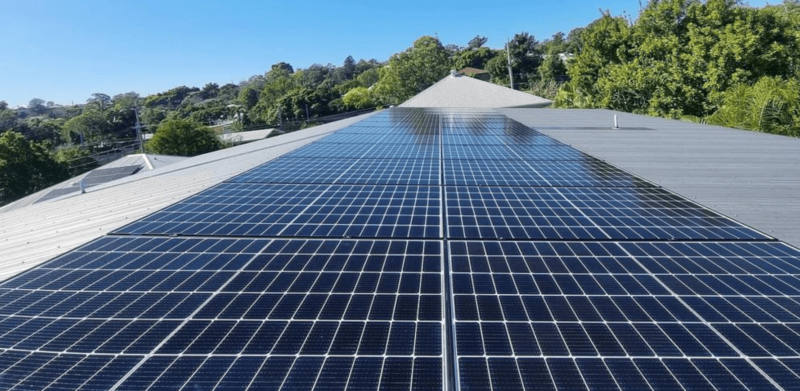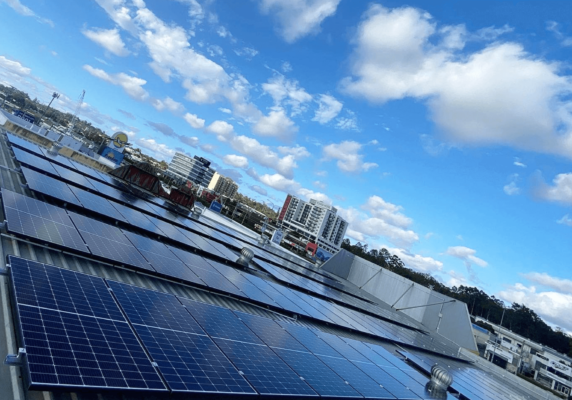Micro vs. String Inverters vs. Panel Optimizers. Everyone is transitioning to solar systems to bid farewell to those high energy bills. By now, we are all quite familiar with the two main components of a solar system: Solar Panels and Solar Inverters. Most of us are aware that there are several types of inverters available. One common choice is the PV string inverter, which holds popularity in Australia due to its affordability.
Beyond that, there’s a world of technology like micro-inverters and panel optimisers. Determining which one is superior can be a challenge. Nonetheless, this information is invaluable in helping you decide which option suits homeowners best. In a nutshell, the technology of micro inverters and power optimizers outshines string inverters, offering additional benefits that can make all the difference.
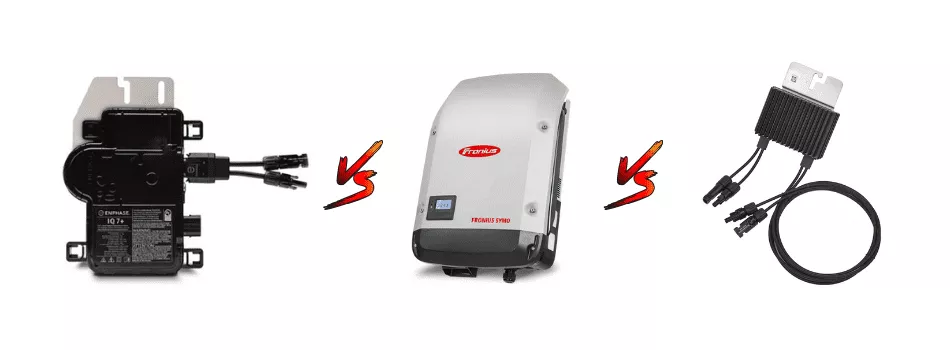
What is a Micro Inverter?
A Micro-inverter is an inverter compatible with the majority of solar systems, enhancing their efficiency. It accomplishes AC conversion at each panel, directly boosting system performance. As sunlight reaches the solar panels, the micro-inverter promptly transforms it into AC power.
A micro-inverter enhances safety by reducing the distance high voltage currents must travel. With individual operation for each solar panel, optimal positioning is possible to suit your energy consumption needs.
What is a String Inverter?
A String inverter involves wiring your panels together in a series, allowing multiple inputs and converting DC into AC within a single unit. They are widely used for home systems and perform efficiently without shading.
The functionality of string inverters converts DC energy to AC energy. This process relies on strings and cables connecting the panels and inverter, transporting DC energy throughout your home. Among the numerous manufacturers of string inverters, Fronius and SunGrow stand out as leaders in this field.
What is a Panel Optimiser?
A Panel Optimiser (also referred to as a power optimiser) is linked to individual panels to regulate their output. Having this optimiser is beneficial – if a panel’s performance declines, it won’t impact the functionality of the other solar panels. Moreover, panel optimisers enhance the efficiency of DC energy generated by the solar panels, enabling the inverter to convert it into AC energy with greater effectiveness.
Micro-Inverters Vs String Inverters Vs Panel Optimisers
Suitable to Residential Users
String inverters, commonly utilised in solar systems are a stand-out choice for residential setups, where each system typically incorporates one inverter. They perform effectively without shade. However, if the performance of one-panel drops, it can affect the output of all panels connected in the same string. As a result, these inverters may not be the best choice for those seeking maximum energy production.
Performance and Efficiency
On the other hand, Micro inverter eliminates this issue. The performance of any panel will not affect the rest of the panels. Micro inverters enhance each individual solar panel to make this possible. Micro inverters are more beneficial than string inverters and panel optimisers in many ways. The top benefit is that you can easily add on a new panel without affecting the working of the rest of the panels. The feature of independence is valuable as it is easy to diagnose faults.
Micro Inverters can further enhance the efficiency of your panels by accurately identifying the optimal voltage for the system, subsequently generating maximum power voltage. Similarly, panel optimisers possess the capability to achieve this as well.
Micro inverters and panel optimisers improve the performance of solar systems on challenging roofs. They enable individual panel monitoring, a valuable feature for homeowners to track energy production, usage, and return on investment (ROI).
Energy Conversion
Panel optimisers do not convert energy like micro inverters; instead, they condition DC energy before transmitting it to the inverter. This conditioned DC energy undergoes more efficient conversion than regular DC energy, resulting in reduced energy loss.
String inverter systems lack design flexibility, making them unsuitable for smaller or uniquely shaped roofs. Contrarily, micro inverters and panel optimisers are highly recommended for such scenarios. Panel optimisers and micro inverters provide design flexibility since adjacent panel placement isn’t necessary—each unit operates independently from the others.
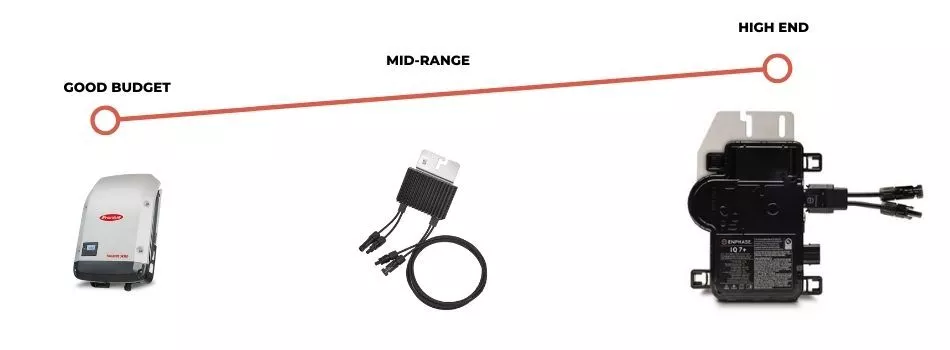
Final Verdict
Quick summary:
- Micro inverters and Panel Optimisers are safer than String Inverters.
- String inverters offer fast ROI and affordability.
- Panel Optimisers and Micro Inverters are advanced.
- Both choices offer long warranties.
Opting for a Panel Optimiser or Micro Inverter over a String Inverter is a good choice. For more insights, contact our experienced solar installers and receive a complimentary quote anytime. Our excellence is reflected in our reviews—be sure to check them out!

